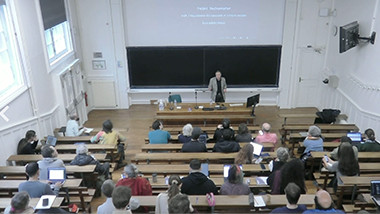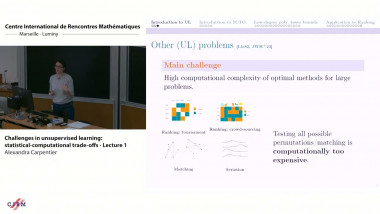
The flat and the relief : geometric material models in 19th century France
By Frédéric Brechenmacher

Challenges in unsupervised learning: statistical-computational trade-offs - Lecture 1
By Alexandra Carpentier
Appears in collection : Mathematical communities in the reconstruction after the Great War (1918-1928) / Les communautés mathématiques dans la reconstruction de l'après-guerre (1918-1928)
In order to explore the advances made on the economic issue of business cycles, I will present the work of the American economist Henry Ludwell Moore, who published four works on the question between the years 1911 and 1923. Within this framework, I will introduce several issues, such as the duality of empirical and theoretical approaches, the causal and semiological interpretations of the correlation, the notion of the ceteris paribus law in economics, the notion of non-probabilistic statistical mathematics, the development of the notion of the dynamic model at the end of the 1920s, the diverse analysis techniques of chronological series and their artefacts. I will also make reference to the contributions of other actors in this field.
Cournot Centre session devoted to the transformations that took place in mathematical economics during the interwar period.
